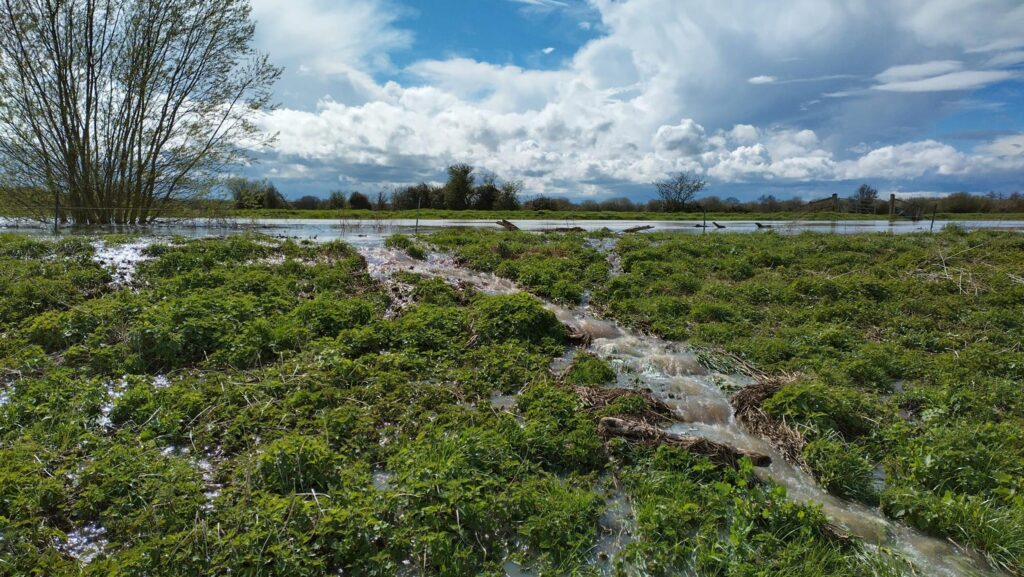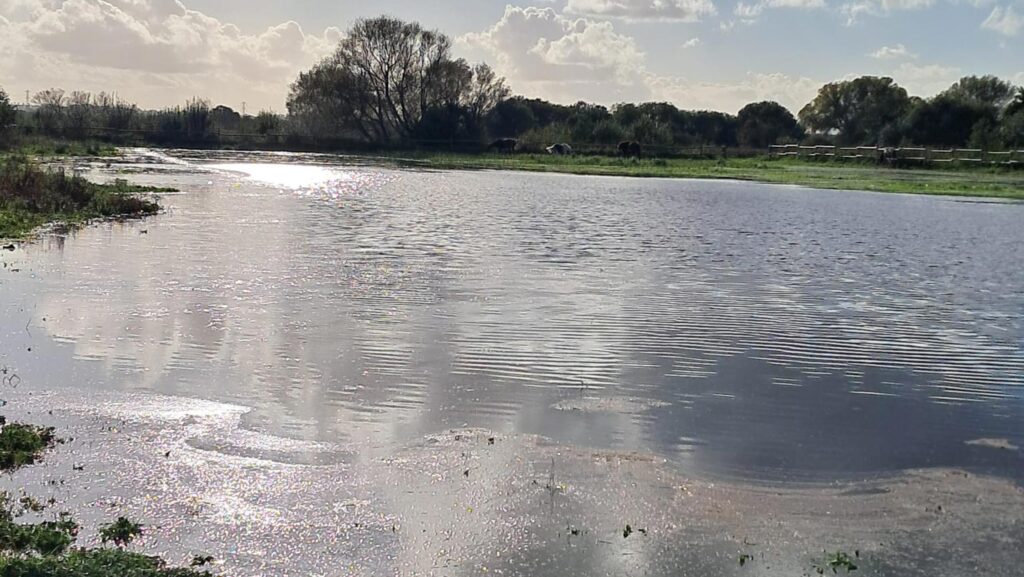Somerset farmers demand EA action to prevent flooding
 River Brue © Charlie Ainge
River Brue © Charlie Ainge Farmers in Somerset are urging the Environment Agency (EA) to intensify efforts to prevent flooding on the Somerset Levels, especially as climate change increases the frequency and severity of extreme weather events.
They believe that the flooding of agricultural land this autumn, and similar incidents in recent years, would have been considerably less severe if the EA had maintained a regular schedule of clearing and dredging the rivers and watercourses.
Since the severe floods in 2014, the EA has implemented measures aimed at flood resilience, including the Somerset Levels and Moors Action Plan in collaboration with local councils and the Somerset Rivers Authority.
See also: Flood-hit farmers call for National Rivers Authority to be reinstated
This plan encompasses flood management improvements such ase dredging and maintenance of critical rivers such as the Parrett and Tone, enhancing water storage capacity, and establishing natural flood defences.
However, farmers argue that the agency’s current maintenance schedule is inadequate given the area’s heightened flood risk due to the changing weather patterns.
Many farmers, like Charlie Ainge, a local arable and livestock farmer, who farms aland along the rivers Axe and Brue, report prolonged flooding of their fields due to the overflowing and clogging of these rivers.
Mr Ainge, who has seen fields on his 81ha farm submerged for nine to 12 months over the past year, highlighted significant obstacles such as the unchecked growth of willow trees in the River Brue that hinder water flow.

River Brue © Charlie Ainge
With stretches of up to 10 miles clogged by vegetation and sediment buildup, the water is unable to drain from the Levels effectively, he says.
Decades of inaction
“We have got rivers and watercourse around here that have not been maintained for decades.
“There are stretches up to 10-miles long with hundreds of trees slowing down water flow, which means water cannot leave the Levels.
“We are supposed to be protecting and regenerating soils. But the earthworm populations have been drowned and the bird life has also been destroyed.”
Adding to the frustration, some farmers fear legal repercussions for independently maintaining rivers and watercourses.
Yet they argue that if the EA is financially unable to fulfil this responsibility, they should be granted permission to carry out the necessary maintenance themselves.
The prolonged flooding has impacted farmland value, eroded earthworm populations, and harmed bird life, contributing to significant ecological and economic setbacks for local farmers.
James Winslade, a beef and arable farmer near Bridgwater, said Defra is encouraging more farmers to enter the Sustainable Farming Incentive and other agri-environment schemes, which are essential for farmers as Basic Payments Scheme is finishing.
But he questioned how farmers will be able to maintain their agreements if their land floods regularly through lack of maintenance from the EA or other bodies.
He also questions how farmers can meet carbon-offsetting goals under contracts with private businesses if frequent flooding disrupts carbon-absorbing vegetation and leads to rotting, which releases carbon instead.
“Then you are not absorbing carbon, which you have been contracted and paid to do, so will potentially be in breach of contract,” said Mr Winslade.
“Because it’s not the farmer’s fault and comes down to a lack of EA maintenance, who pays the farmer?” he asked.
Agency response
An EA spokesperson said: “We understand the concerns farmers have, and we are working with internal drainage boards to deliver as much maintenance as possible to reduce flood risk for our communities this winter.
“However, the Environment Agency must prioritise its resources where they are going to reduce flood risk to the greatest number of people.
“We will always respond to serious flooding incidents and continues to engage closely with communities to raise awareness of flood risk and build resilience.
“Alongside this we are working with local partners to seek ways of attracting more funding to increase maintenance back to previous levels.”
